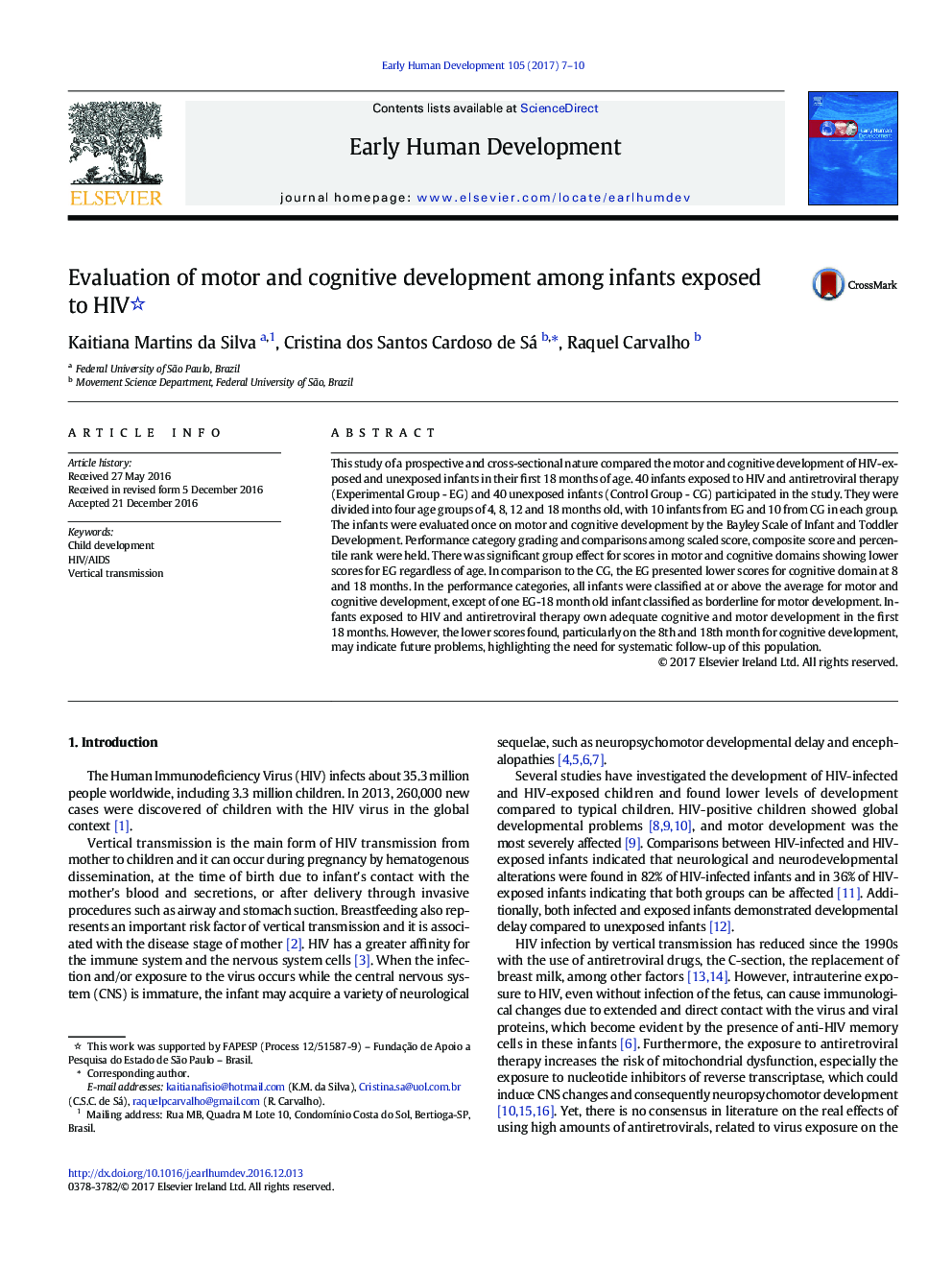| Article ID | Journal | Published Year | Pages | File Type |
|---|---|---|---|---|
| 5691312 | Early Human Development | 2017 | 4 Pages |
Abstract
This study of a prospective and cross-sectional nature compared the motor and cognitive development of HIV-exposed and unexposed infants in their first 18Â months of age. 40 infants exposed to HIV and antiretroviral therapy (Experimental Group - EG) and 40 unexposed infants (Control Group - CG) participated in the study. They were divided into four age groups of 4, 8, 12 and 18Â months old, with 10 infants from EG and 10 from CG in each group. The infants were evaluated once on motor and cognitive development by the Bayley Scale of Infant and Toddler Development. Performance category grading and comparisons among scaled score, composite score and percentile rank were held. There was significant group effect for scores in motor and cognitive domains showing lower scores for EG regardless of age. In comparison to the CG, the EG presented lower scores for cognitive domain at 8 and 18Â months. In the performance categories, all infants were classified at or above the average for motor and cognitive development, except of one EG-18Â month old infant classified as borderline for motor development. Infants exposed to HIV and antiretroviral therapy own adequate cognitive and motor development in the first 18Â months. However, the lower scores found, particularly on the 8th and 18th month for cognitive development, may indicate future problems, highlighting the need for systematic follow-up of this population.
Related Topics
Health Sciences
Medicine and Dentistry
Obstetrics, Gynecology and Women's Health
Authors
Kaitiana Martins da Silva, Cristina dos Santos Cardoso de Sá, Raquel Carvalho,
